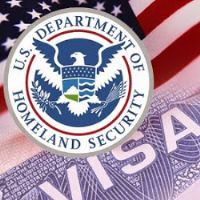American Workers Clash with Homeland Security Dept. over Hiring of Spouses of Foreign Workers

A group of high-tech workers is suing the Department of Homeland Security (DHS) over its decision to grant visas to spouses of foreign workers, which has made it more difficult for Americans to find work, the plaintiffs claim.
The controversy centers around DHS’ decision to offer H-4 visas to husbands and wives of foreign workers in the U.S. under the contentious H-1B program. The rule takes effect May 26.
A group of former Southern California Edison computer workers who were replaced by foreign workers on H-1B guest-worker visas banded together under the name Save Jobs USA. They filed suit in federal court contending the H-4 visa program violates immigration laws and unfairly hurts them get new jobs.
“The H-4 Rule is in excess of DHS authority and directly contradicts several provisions of the Immigration and Nationality Act,” the lawsuit says. The utility forced the workers about to be laid off to train their foreign replacements in order to qualify for severance benefits.
DHS has said the H-4 program could add upwards of 179,600 new foreign workers to the U.S. workforce during the first year of its implementation. After that, the program could add 55,000 more each year.
The Seattle Globalist used a profile of a beneficiary from the H-4 as an illustration of the rule change’s intrinsic value. The Seattle Times thought so much of her story, they topped their's two months later with an anecdote about her. Advertising and marketing rising star Niyati Desai left her native India to accompany her husband, who had an H-1B visa to work in the U.S. Because she only had an H-4, she couldn’t work, until now.
Beyond the rescue of underemployed spouses, H-1B and H-4 visas are characterized by supporters as filling a shortage of labor with technical skills and injecting a needed dose of hungry, entrepreneurial-minded workers into the economy. It embraces free markets and the expanding global economy.
It also dilutes the workforce with much cheaper labor, pushing wages down and creating more pliant, unmoored, ever-transitioning employees.
Supporters see that as a plus. Detractors do not. They would prefer a free-market solution that does not discourage development of science, technology, engineering and math (STEM) skills in the U.S. by making those fields less financially attractive.
The lawsuit profiled three veteran Edison workers displaced by H-1B imports who will now compete in the computer job market with H-4 visa holders. All three were compelled to train their replacements.
“This is a slap in the face to the tens of millions of Americans suffering from unemployment and underemployment, especially those who are most vulnerable such as students, seniors, single mothers and minorities,” Dale Wilcox of the Immigration Reform Law Institute, which is representing Save Jobs USA, told Courthouse News Service. “The law states that foreign work permits cannot adversely affect American wages, but all we’ve seen during this administration is standards of living fall and outsized corporate profits continue to rise.”
The Economic Policy Institute calculated in 2013 that more than 80% of H-1B visa holders are hired at wages below those paid to American workers in comparable positions.
–Noel Brinkerhoff and Ken Broder
To Learn More:
DHS Accused of Giving Tech Jobs to Guests (by Jamie Ross, Courthouse News Service)
Displaced Southern California Edison Workers Sue Obama Admin. over Unilateral Visa Rule (by Caroline May, Breitbart)
Save Jobs USA v. Department of Homeland Security (U.S. District Court, District of Columbia) (pdf)
Program to Import “Needed” Tech Workers Displaces 400 Laid-Off SoCal Edison Workers (by Ken Broder, AllGov California)
- Top Stories
- Controversies
- Where is the Money Going?
- California and the Nation
- Appointments and Resignations
- Unusual News
- Latest News
- California Forbids U.S. Immigration Agents from Pretending to be Police
- California Lawmakers Urged to Strip “Self-Dealing” Tax Board of Its Duties
- Big Oil’s Grip on California
- Santa Cruz Police See Homeland Security Betrayal in Use of Gang Roundup as Cover for Immigration Raid
- Oil Companies Face Deadline to Stop Polluting California Groundwater





